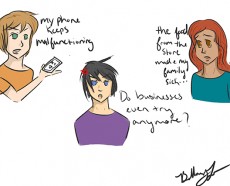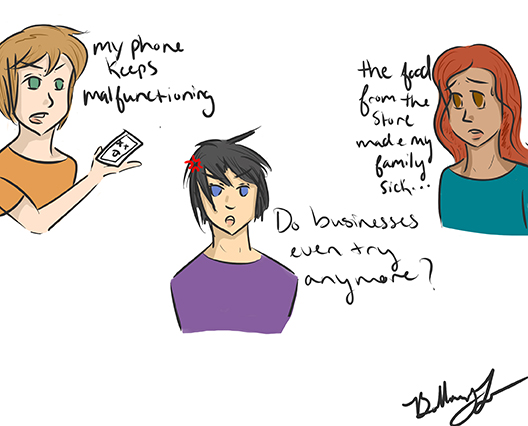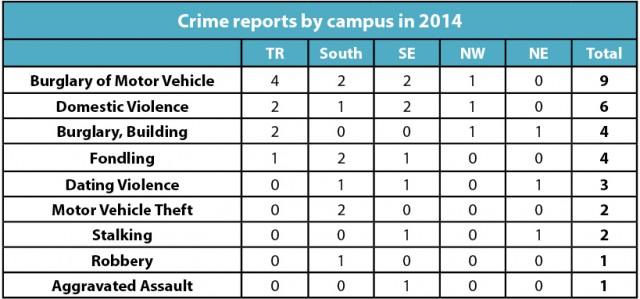An object at rest will remain at rest unless otherwise acted upon.
Corporations are no different.
Their motive is to make money, and this often drives them to allow knowingly defective or misleading products onto the market.
The most recent popular example of this is Volkswagen. The company that many consumers trust as environmentally responsible put software on 11 million of their diesel cars to fool emissions tests.

In Volkswagen’s case, the company has lost the trust of many otherwise loyal customers, and this will hurt them significantly.
They are not alone, however, in knowingly misleading the public for the sake of making more money.
On Sept. 21, an executive at the Peanut Company of America was sentenced to 28 years in prison for selling salmonella-contaminated peanuts with full knowledge. Over 700 people became sick, and nine died.
Recently as well, two egg executives, two cantaloupe farmers and another peanut butter company executive all pleaded guilty to misdemeanor charges for knowingly selling contaminated products that led to salmonella outbreaks.
Had their products not sickened consumers, these companies would have gone about their business continuing to operate in the same manner without remorse.
Still, it makes people comfortable to assume that these companies are anomalies, that most are not selling contaminated, malfunctioning products.
But, these are only several of the most recent examples.
Only a year ago, General Motors recalled 29 million of its cars, almost all of which were because of an error with the ignition switch. The switch would occasionally malfunction causing the engine to shut off while people were driving. This issue was the cause of many car crashes and led to the deaths of over 75 people.
Adding insult to injury, the company had knowledge of the defect nearly a decade prior to the problem becoming public knowledge and even prior to any of the defective cars being put on the market.
One might wonder how this type of deceit is not better regulated. The National Highway Traffic Safety Administration had also been aware of the ignition defect for some time without taking any action until the issue exploded.
At the time of the recall, U.S. Attorney Peet Bharara explained that it was not even illegal for GM to sell a knowingly defective car that led to the death of many drivers.
Corporations do the right thing only when necessary.
What the examples of Volkswagen, GM and the Peanut Company of America make clear is that the public cannot trust companies to act in the interest of consumers.
When we assume corporations will do the right thing, we put our own health and safety at risk. No longer is it acceptable to think demanding companies to pollute less is asking too much or that holding them accountable to producing a high-quality, safe product is burdening them financially.
Let us instead place a higher value on our lives and the environment. Let’s put our values above their bottom line.






























